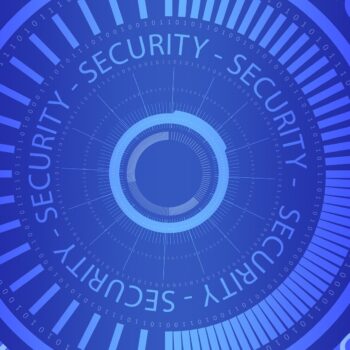
SMEs are currently investing in IT security. This is reported by a new ESET study. The willingness of companies to invest in IT security and digitization is picking up speed despite the pandemic in 2021.
The digitization of the economy is in full swing, investments are being made more heavily than ever before. But what role does IT security play in this: Are companies sticking to the status quo or are they sustainably accepting the challenge of the changing market situation caused by Corona? The IT security manufacturer ESET pursued this question in a representative survey in Germany, Austria and Switzerland. And the results show that company leaders have recognized the seriousness of the situation. 62 percent of companies will spend more on IT security in 2021. Manufacturers and providers of IT security solutions and services will therefore benefit from a massive increase in investment.
"Obviously, many companies had internal audits that put their own IT security to the test," says Peter Neumeier, Channel Sales Director at ESET Germany. “Many companies have drawn up clear requirement profiles for the selection of new security solutions. In addition, almost 60 percent of those surveyed want to bring in external expertise in the form of managed service providers this year or next. "
Covid-19 as an investment driver
The majority of the DACH companies (62 percent) stated that Covid-19 had a large or very large influence on the upcoming purchase decisions for IT security software. While only half of the respondents in Germany agreed, the results in Austria (72 percent) and Switzerland (84 percent) were significantly higher. The pandemic (500 percent) was also a strong factor for new investments in the enterprise sector with 77 or more jobs. The high values indicate that there was a clear need to catch up and / or that the flexible “sneaker administrator” model has had its day. In particular, the move to the home office may have caught some companies on the wrong foot.
Companies formulate a clear requirement profile
"It is very gratifying that companies have used the pandemic to be clear about their own requirements for effective IT security", summarizes Peter Neumeier. The hectic transition to the home office in many places led to fast, pragmatic solutions - which, however, neglected the security level, especially of the external endpoints.
So it is not surprising that many companies approach IT security with an overview:
- For 72% of those surveyed, IT managers now make the decision about purchases. In Austria and Switzerland the value rises to 82%.
- 68% stated that they wanted to obtain IT security solutions as completely as possible from one manufacturer (single vendor).
- IT security solutions should be easy to administrate (57%) and installable (48%) and score well in test reports (46%). 36 percent of the study participants prefer security solutions from a European manufacturer.
"Cloud first" seems to be the motto for almost three quarters of companies: 72% rely on cloud-enabled security solutions (39% of them both cloud and on-premises). The popularity of purely on-premises products (28%) seems to be declining, but almost one in three would not want to do without them. While the ratio of the three variants is almost the same in Germany, companies in Austria tend towards cloud-enabled solutions (52%). In Switzerland, however, one in six (59%) prefers the hybrid form of cloud and on-premises solutions. The same applies to respondents from the enterprise sector (58%).
Companies are often not satisfied
Not every review of the measures and the security solutions used turned out to be satisfactory to the companies. For example, 27 percent already changed providers last year, and another quarter of those surveyed will be added for 2021. There are many reasons for this (multiple answers were possible):
- Budgetary reasons (41%)
- Switch to cloud solution (38%)
- Dissatisfaction with previous provider (32%). Interestingly, enterprise companies are well above this figure (59%)
Strong upswing expected for MSPs
The shortage of skilled workers and the overloading of many IT departments are leading to a rethinking of external IT support. Almost two thirds (62%) of all companies stated that they already worked with a managed service provider or that they would tackle this within this year. Another 13 percent are considering this in the next five years at the most. This is not surprising. Every fourth company already trusts the recommendations of an IT reseller when selecting its security equipment. This is even more pronounced in Switzerland (41%) and in enterprise companies (42%).
In Switzerland, just 6 percent want to do without MSP completely. This value is much lower than the DACH average of 21 percent. "The interest in MSP is a clear appeal to specialist dealers and system houses to deal with the topic as quickly as possible and to be prepared for the future," says Peter Neumeier. "Active managed service providers should now develop effective concepts with their partner manufacturers and benefit from the" run "on MSP".
About the Study
On behalf of ESET, Statista GmbH (Hamburg) carried out a representative survey on willingness to invest in IT security solutions and services among 300 companies of various sizes in Germany, Austria and Switzerland in October and November 2020.
More on this at ESET.com
About ESET ESET is a European company with headquarters in Bratislava (Slovakia). ESET has been developing award-winning security software since 1987 that has already helped over 100 million users enjoy secure technology. The broad portfolio of security products covers all common platforms and offers companies and consumers worldwide the perfect balance between performance and proactive protection. The company has a global sales network in over 180 countries and branches in Jena, San Diego, Singapore and Buenos Aires. For more information, visit www.eset.de or follow us on LinkedIn, Facebook and Twitter.
